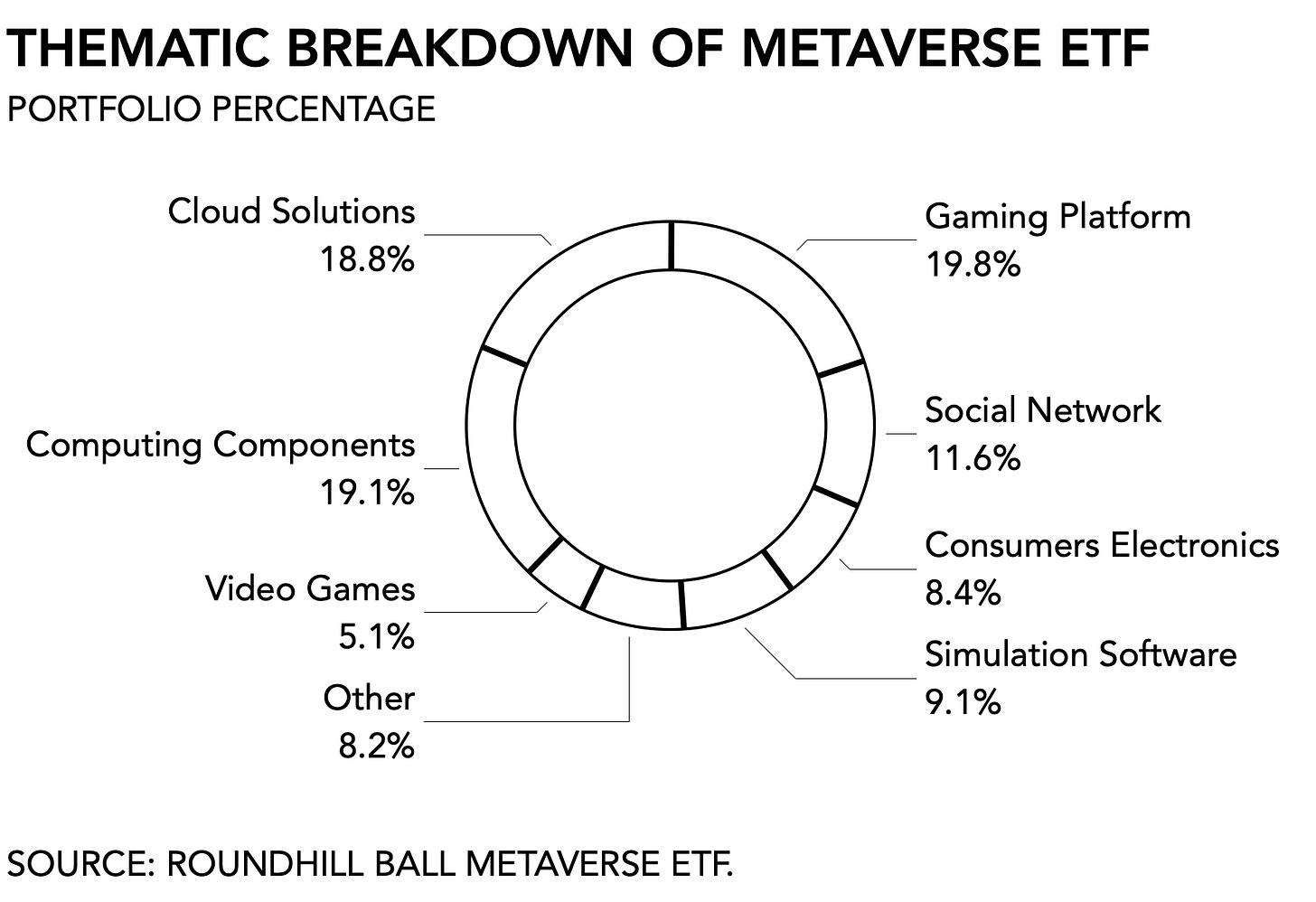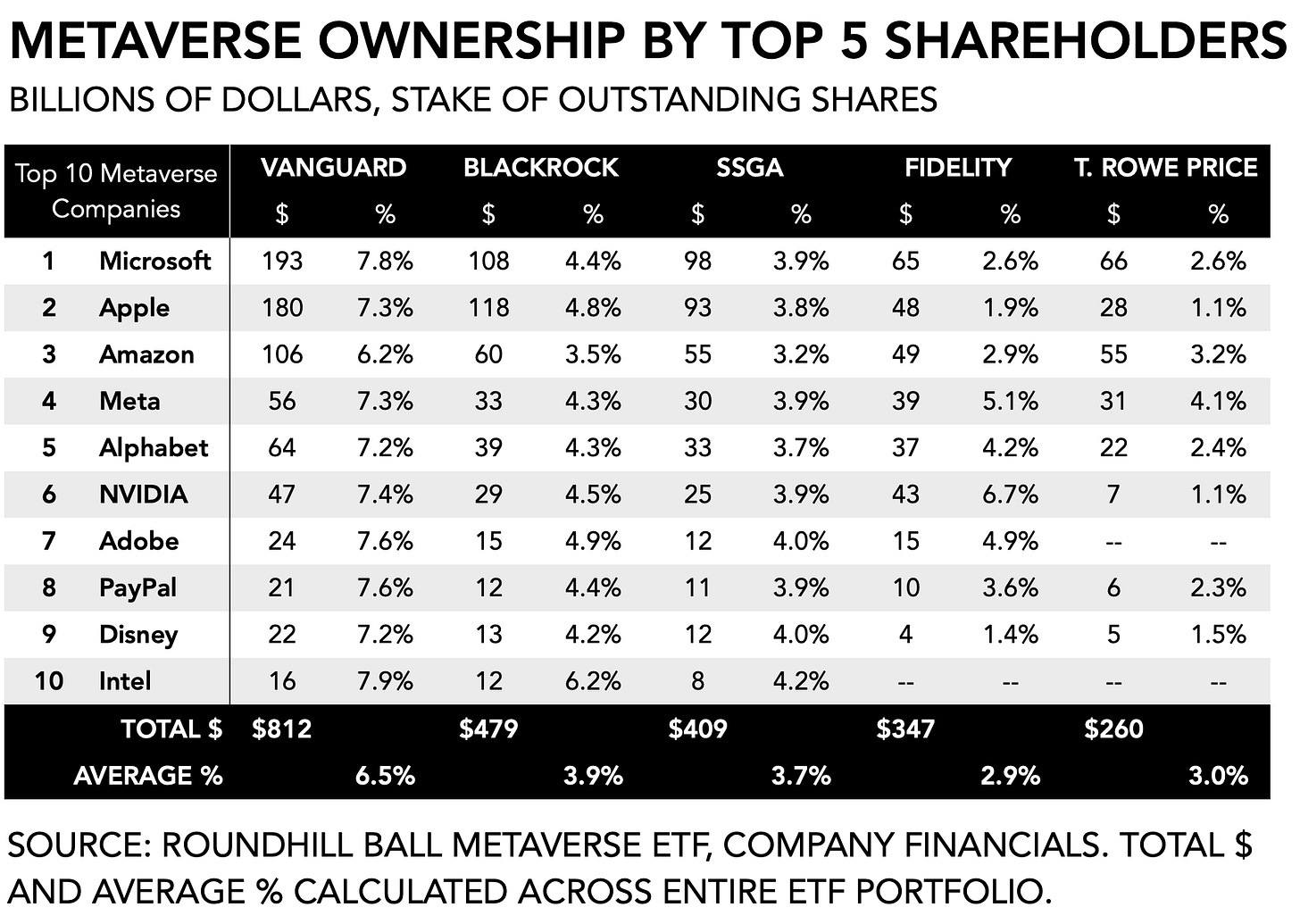Thanksgiving is an excellent time to play some games.
This year I have Unpacking lined up, which tells a story about a person you never meet by unboxing their things during major life milestones. You start with a kid’s room, followed by a college dorm room, and so on, which offer subtle hints about the person’s life as it progresses.
The metaphor isn’t lost on me, of course. During major milestones, we are often forced to rid ourselves of things that have been part of our lives and make room for new stuff. Having a kid this year meant throwing out several cubic tons of whatever it was that we were keeping in the basement as well as dispatching a broad array of emotional hangups.
I’ve let go of my FOMO around crypto if nothing else because every single one of my holdings dropped 10% on the news that Biden signed the infrastructure bill. I’ve also abandoned any illusions around getting through life without going to the gym. Bummer. Was really looking forward to never working out again. And, finally, it is a stinging realization that even as we work and play together each day, some are called earlier than others (see below).
Figuring out where you sit with things and unboxing them can re-oxygenate life. It is hard work but for this I give thanks.
On to this week’s update!
IN MEMORIAM: Manny Anekal
If you’re lucky, you get to work in an industry that fascinates you. If you’re really lucky, you make a few friends along the way. As we go about business, it is often easy to forget that life is finite. You see each other at conferences and networking events but never think about the next time. I was saddened to hear of the passing of Manny Anekal, who I met through his relentless push into esports a few years ago. A fellow Newyorker that grew up with drum ‘n bass music, we had a lot in common, especially when it came to separating business from bullshit. He set himself a high bar and hustled harder than anyone. That made him an essential part of a growing ecosystem and a hilarious wingman at events.
He will be missed.
(Manny leaves behind a son, who could use your help.)
BIG READ: WHO OWNS THE METAVERSE
“A revolution that does not produce a new space has not realized its full potential”
-- Lefebvre, 2004
It might be too early for the following analysis, but I’m going to do it anyway because given how fast things are moving I need to start somewhere.
Following a recent conversation on the metaverse on Bloomberg Intelligence with Supersocial’s Yonathan Raz-Fridman and Matthew Kanterman, it is now clear that I cannot go around. I must go through it.
Zuckerberg’s rebranding of his company to Meta sent the world into a tizzy. Decentraland, a crypto-based metaverse, saw its currency, MANA, skyrocket from $0.77 to $4.05 largely based on the news. Today it traded at almost $6 on the news of crypto-investor purchasing a $2.4 million plot of virtual land.
We can also thank him for making us suffer through a deluge of earnings reports and executive presentations mansplaining us all about the metaverse. The use of the word in SEC filings has jumped from a mere seven mentions last year to 173 or so year-to-date. As a matter of personal philosophy, whenever the same buzzword appears on my screen too often, I tend to run in the opposite direction. When the choir of middle-aged middle managers swells and starts to sing in tune, something’s fucky.
Despite its dystopian origins, the more contemporary interpretation of an interconnected, perpetual, synchronous super-layer on top of existing online services and social behaviors does feel intuitively correct. The pandemic has taught us that a reality in which we blend our physical and digital lives isn’t quite as far away as we thought it would be. Even the most ardent opposers of gaming--teachers, employers, parents, and politicians--all found their way online to re-connect with pupils, employees, kids, and voters.
The metaverse, and the myriad of underlying creative and commercial activity from which it springs, proposes a new epistemic space. We will be able to do things we haven’t before such as attend live concerts with millions of others at once and interact and exchange in ways that are, ostensibly, better.
Such a thing isn’t new, of course. The television was initially positioned as a delivery device that would facilitate the distribution of education by the best and brightest to those who had been denied access. Similarly, the information superhighway was going to democratize access to libraries and knowledge and make us all better citizens. I think it’s fair to say that both have yet to deliver on much of their promise.
Instead, what TV and the internet have in common is that they managed to become the epicenter of civic life. You cannot get elected unless you spend lots of money on a TV campaign. Live events are a necessary anchor of day-to-day activity. Watching a season finale together or a World Cup match is a riveting experience because we know others are watching it, too. To have a sense of social interaction during the various lockdowns, people took to online games and digital social spaces to interact.
In academic terms, logging in to see what’s going on offers confirmation that there is indeed a sense of continuity in the events and affairs of society at large. Social media channels like Twitter are excellent at this. And games and virtual worlds are expected to add a third dimension.
Admittedly, the metaverse isn’t here yet. I mean, at all. But to get a sense of what it might look like we can take stock of the different firms preparing themselves to lead the revolution.
An easy place to start compiling a shortlist of metaverse pioneers is the Roundhill Ball Metaverse ETF (RBME). My colleague Matt Ball believes it contains at least 41 companies that “are actively involved in the Metaverse.” (For a full list go here.) So far RBME has reported having $769 million in assets under management since its launch over the summer. These firms are organized by key themes as indicated below.
Two immediate problems emerge. First, there are way too many incumbents involved. Sure enough, I can see why Meta is keen on being part of this future. After Zuckerberg missed mobile and had to haul ass to catch up, he’s been spending generously (see: Oculus) just to stay ahead of the competition. More terrifying than a competitive application is missing an entire technological shift. But disruption doesn’t take prisoners nor does it play favorites.
Similarly, legacy game makers are unlikely to make a big splash here. If Activision Blizzard even succeeds in neutralizing the current slow-motion implosion it triggered on account of its executive dysfunction, then it is still unclear if it can meaningfully contribute. When it comes to novel technology it has historically not shown itself a leader and shows a preference for purchasing successful entities at a premium (e.g., Blizzard, King Digital) rather than nurturing innovation from the ground up.
Competitor Take-Two is enamored by web3 technology like blockchain and non-fungible tokens, but seems otherwise skeptical of the metaverse, arguing that it already exists.
“I would argue we’re probably the biggest metaverse company on Earth if you look in terms of revenue and profits because we’re in [‘Grand Theft Auto Online’], which really I think defines the metaverse today, ‘Red Dead Online’ and ‘NBA 2K’s’ online version.”
Microsoft has presented us with a rather terrifying visualization of floating torsos that are now going to be replacing corporate meetings. During my preciously short work experience at a large firm, I watched under-staffed and over-worked HR and legal departments suffer through byzantine software applications. The last thing they need is having to create some happy avatar.
And, certainly, NVIDIA’s stock has skyrocketed. But the firm suffers from regulatory pressure on account of its proposed acquisition of Arm. And the current supply chain issues are, by some accounts, just a taste of what’s to come.
The best thing we can say for these companies is that if we go up one floor and look at the largest shareholders, there is perhaps some room for optimism. Major investors like the Vanguard Group, BlackRock, and others do hold substantial shares in the RBME consortium. This is consistent with maintaining a diversified portfolio.
The Vanguard Group holds shares in 36 of the 41 firms in the RBME portfolio. BlackRock has 34, Fidelity 29, SSgA 28, and T. Rowe Price 20. That tells us the current ‘ownership’ of the metaverse by large investors is roughly in line with their historical financial positions in mass media, telecom, and IT verticals. They are, however, also the usual suspects and foreshadow more of the same.
There’s more here, of course, but for brevity’s sake, it is not entirely clear just yet how these firms are going to lead the transition. We grew up with the knowledge that the revolution would not be televised. With this crew, it is also unlikely to manifest virtually.
Second, the abject absence of diversity is alarming. One of the major hindrances in tech and gaming has been the absolute ubiquity of men. The masters of the metaverse are, so far, almost exclusively sourced from a single gender. Based on the RBME group, there is exactly one woman in a leadership position: Lisa Su at Advanced Micro Devices. The rest: all dudes.
Arguably the RBME list is limited. But even if we widen the total pool of firms that are building the metaverse and use Jon Radoff’s more extensive list that includes also privately-held firms like Epic Games, we count only seven women out of a total of 142 companies.
Personally, I’m only mildly interested in a male-governed metaverse. I’ve been to Vegas. It’s so-so. The whole point of such an evolution, or even revolution, in media technology would be the deliberate and purposeful inclusion of a broader array of voices. The question as to who owns the metaverse remains unanswered. That’s because we’re only at the beginning of this novelty and still have a chance to build something new.
Imagine a world in which organizations don’t just start cleaning up their work culture once they get caught, or suddenly find the need and budget to hire a diversity manager after years of toxic behavior. Similarly, the meta-marketplace of ideas can only really exist if its architects manage to bring a broad set of experiences to its design.
This is not that.
NEWS
Epic Games acquires Harmonix
Known for its hit franchise Guitar Hero, Boston-based Harmonix is now part of the Epic family. The synergies (do people still use that word?) are obvious: as the music industry increasingly leans on games to organize events, interactivity will be a clear value-add and give people something cool to do while watching their favorite musicians perform. Recently, I had a guest speaker from Warner Music do a show & tell with my students on the Twenty-One Pilots performance in Roblox, which featured a similar play mechanic where you have to hit the notes at the right time. Nevertheless, we do have to ask the obvious question: how are the Epic acquisitions going so far? Since the acquisition of Mediatonic, Fall Guys has been in decline from 172,026 ATH concurrent players on Steam to a 30-day average of 6,102.
Tencent suffers more government admin
China has suspended the giant from updating any of its existing apps. It is also not permitted to launch any new apps as part of a “temporary administrative guidance.” On the wings of an earlier restriction that limited gamers under 18 to three hours of gaming per week, the Chinese government seems keen to injure one of its largest domestic firms. Previously Tencent missed out on an estimated $3 billion in revenues when China overhauled its game approval system. The current decision is a setback for the Chinese games market, leading Niko Partner, a data firm (disclosure: I’m an advisor) to cut its forecast for China’s video game market for the first time in 20 years. Link
Niantic receives $300 million in funding from Coatue
Striking the iron while it’s hot, the Pokémon Go firm managed to haul quite a bit of funding at a $9 billion valuation. The capital is earmarked to expand its Lightship developer platform and build out its vision for the Real-World Metaverse. Personally, I’m a fan of Hanke, who I believe is the real deal. But after announcing that it is shutting down Harry Potter: Wizards Unite in January next year, Niantic needs a clear win. Link
PLAY/PASS
Play. Microsoft launched a browser-based museum documenting the Xbox’s first 20 years.
Play. This breakdown by Hans Zimmer on how he arrived at the musical score for Dune. It’s wild. These geniuses are just people!








